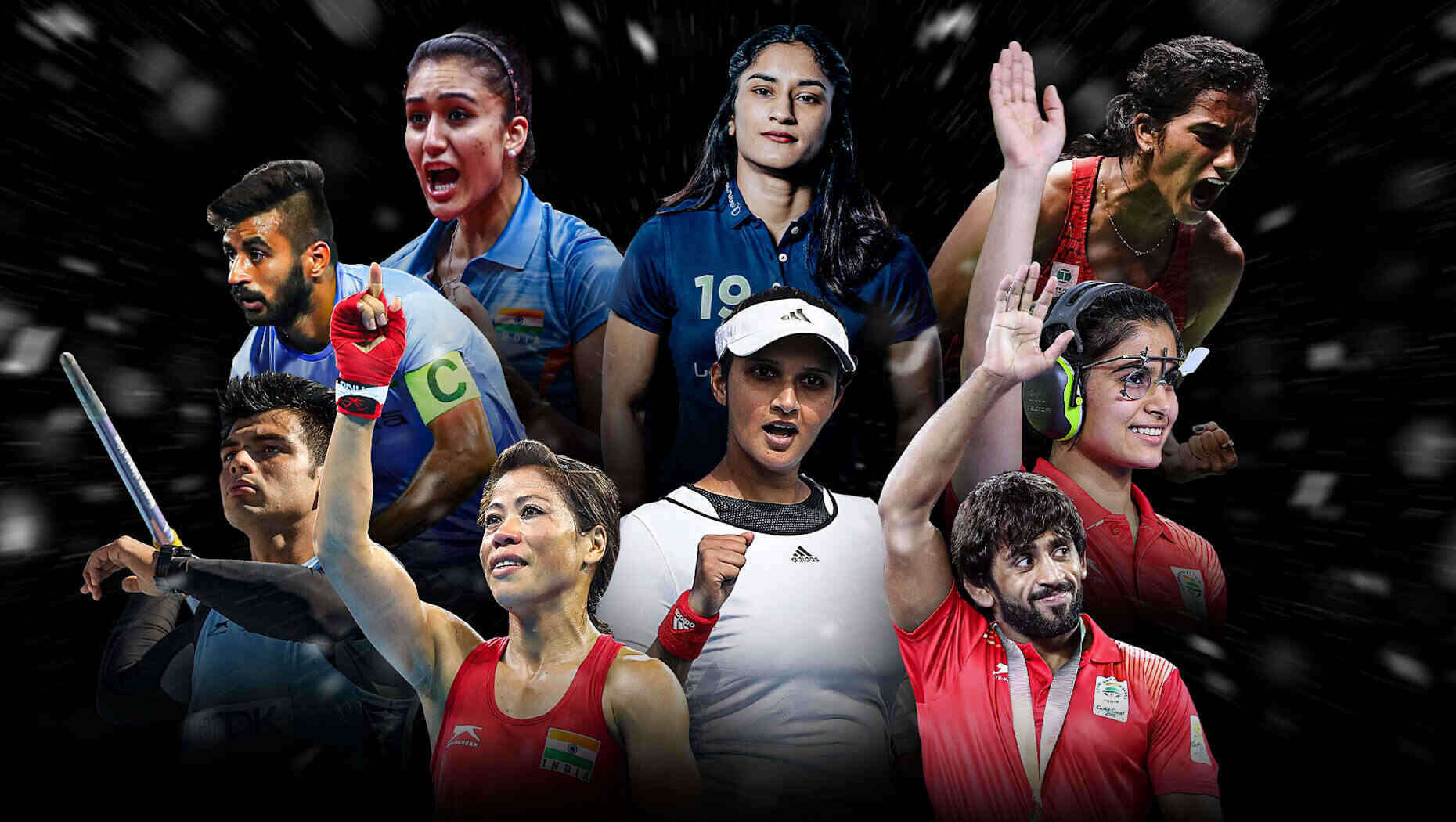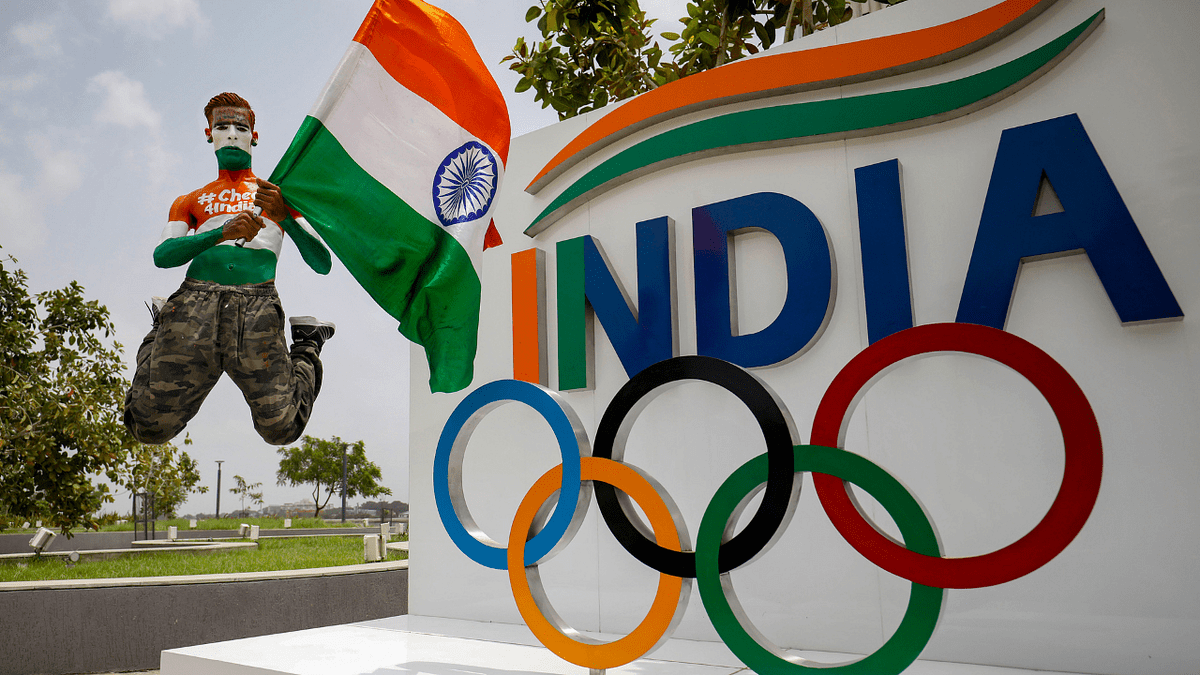India’s Olympic Journey

India’s participation in the Olympic Games has been a captivating saga of triumphs, tribulations, and unwavering spirit. From its first appearance in 1900 to the present day, the nation’s Olympic journey has witnessed a remarkable evolution, marked by significant milestones and the emergence of legendary athletes who have etched their names in the annals of sporting history.
Evolution of India’s Participation
India’s first foray into the Olympic Games was in the 1900 Paris Games, where Norman Pritchard, an Indian-born British athlete, won two silver medals in athletics. This initial participation, however, was not under the Indian flag, as India was then under British rule. The country’s first official participation as an independent nation came in the 1920 Antwerp Games.
India’s Olympic journey has been characterized by a gradual but steady rise in participation and performance. The nation’s early successes were primarily in field hockey, where it dominated the world stage for decades. From 1928 to 1980, India won eight gold medals in field hockey, establishing itself as a global powerhouse in the sport.
Notable Indian Athletes and Their Contributions
India has produced a galaxy of exceptional athletes who have brought glory to the nation on the Olympic stage. Dhyan Chand, widely regarded as the “Wizard of Hockey,” was a legendary figure who led India to three consecutive Olympic gold medals in 1928, 1932, and 1936. His mesmerizing skills and unmatched goal-scoring prowess earned him global recognition and cemented India’s position as a hockey powerhouse.
Another prominent figure is Milkha Singh, the “Flying Sikh,” who won a gold medal at the 1958 Commonwealth Games and finished fourth in the 400 meters race at the 1960 Rome Olympics. His remarkable journey from a refugee to an Olympic athlete inspired generations of Indians.
Challenges and Opportunities
Indian athletes face a multitude of challenges in their quest for Olympic success. Limited access to quality training facilities, inadequate funding, and a lack of proper coaching infrastructure are some of the major hurdles. However, the nation has made significant strides in recent years to address these challenges. The establishment of specialized training academies, increased government funding, and the rise of private sponsorships have created a more conducive environment for athletes.
The Indian government has also launched several initiatives to promote sports and identify talent at the grassroots level. These programs aim to nurture young athletes and provide them with the necessary support to reach their full potential. With a renewed focus on sports development, India has the potential to emerge as a major force in the Olympic Games.
India’s Olympic Successes and Notable Athletes

India’s journey at the Olympics has been marked by moments of triumph and perseverance. While the country’s medal tally may not be as extensive as some other nations, its athletes have consistently demonstrated remarkable talent, resilience, and sportsmanship, leaving an enduring legacy on the world stage.
India’s Olympic Medal Wins
India’s Olympic medal wins have been spread across various disciplines, showcasing the country’s sporting diversity. The nation has secured medals in hockey, wrestling, boxing, badminton, shooting, and athletics, among others.
India’s Olympic Medal Tally
The following table presents India’s medal tally across different Olympic Games:
| Games | Year | Medal | Athlete | Sport |
|---|---|---|---|---|
| London | 2012 | Bronze | Mary Kom | Boxing |
| Rio | 2016 | Silver | P. V. Sindhu | Badminton |
| Rio | 2016 | Bronze | Sakshi Malik | Wrestling |
| Tokyo | 2020 | Gold | Neeraj Chopra | Athletics |
| Tokyo | 2020 | Bronze | P. V. Sindhu | Badminton |
| Tokyo | 2020 | Bronze | Lovlina Borgohain | Boxing |
Prominent Indian Athletes
India has produced numerous world-class athletes who have made significant contributions to the Olympic Games. Here are some prominent figures:
Dhyan Chand
Dhyan Chand, widely regarded as the “Wizard of Hockey,” is considered one of the greatest field hockey players of all time. He led India to three consecutive Olympic gold medals in 1928, 1932, and 1936. His exceptional skills and mastery of the game earned him global recognition and cemented his place in the annals of Olympic history.
P. V. Sindhu
P. V. Sindhu is a renowned badminton player who has consistently performed at the highest level. She won a silver medal at the 2016 Rio Olympics and a bronze medal at the 2020 Tokyo Olympics. Sindhu’s powerful smashes and tactical prowess have made her a formidable opponent, inspiring a generation of young badminton enthusiasts.
Neeraj Chopra
Neeraj Chopra, a javelin thrower, became the first Indian to win an Olympic gold medal in athletics at the 2020 Tokyo Olympics. His historic achievement was a testament to his dedication, hard work, and unwavering pursuit of excellence. Chopra’s victory sparked national celebrations and instilled a sense of pride in the nation.
Mary Kom
Mary Kom, a five-time world champion in boxing, is a true icon of Indian sports. She won a bronze medal at the 2012 London Olympics, becoming the first Indian woman boxer to win an Olympic medal. Kom’s unwavering spirit and determination have inspired countless young athletes to pursue their dreams.
Sakshi Malik
Sakshi Malik, a wrestler, secured a bronze medal at the 2016 Rio Olympics, becoming the first Indian woman wrestler to win an Olympic medal. Her victory was a significant milestone for women’s wrestling in India, inspiring a new generation of female athletes.
Abhinav Bindra
Abhinav Bindra, a shooter, made history by winning India’s first individual Olympic gold medal at the 2008 Beijing Olympics. He is a highly decorated athlete with multiple world championships and Commonwealth Games medals to his credit. Bindra’s precision and focus have made him a role model for aspiring shooters.
The Future of Indian Olympic Sports: India At The Olympics

India’s Olympic journey has been marked by moments of brilliance and periods of struggle. While the nation has witnessed remarkable achievements, the potential for greater success in future Olympic Games remains vast. To achieve this, a comprehensive approach that addresses infrastructure, talent development, coaching, and government support is crucial.
Current State of Indian Olympic Sports, India at the olympics
India’s Olympic sports landscape is characterized by a mix of strengths and weaknesses. While the country boasts a rich pool of talent, infrastructure and support systems remain a significant challenge.
- Infrastructure: Many training facilities in India lack the necessary resources and modern equipment to meet international standards. This gap is particularly pronounced in smaller towns and rural areas, where aspiring athletes often lack access to quality coaching and training environments.
- Training Facilities: The availability of world-class training facilities is uneven across different sports. While some sports, like cricket, enjoy extensive infrastructure, others struggle to access adequate facilities. This disparity can hinder the development of athletes and limit their potential.
- Support Systems: The support system for athletes, including financial assistance, medical care, and psychological support, is often inadequate. This can create significant challenges for athletes, particularly those from underprivileged backgrounds, who may struggle to balance their training with other responsibilities.
Potential for Greater Success
India’s vast population and inherent athleticism present a significant opportunity for greater success in future Olympic Games. Several factors can contribute to achieving this potential:
- Talent Development: A robust talent identification and development program is essential. This program should focus on identifying promising athletes at a young age and providing them with access to world-class training facilities, coaching, and support systems.
- Coaching: Investing in high-quality coaching is crucial. India needs to attract and retain skilled coaches who can nurture athletes’ talent and guide them towards achieving their full potential. This can be achieved by offering competitive salaries, professional development opportunities, and a supportive coaching environment.
- Government Support: Strong government support is vital. This includes providing adequate funding for infrastructure development, training programs, and athlete welfare. The government should also create policies that promote sports participation and encourage private sector investment in Olympic sports.
Vision for the Future of Indian Olympic Sports
The future of Indian Olympic sports holds immense promise. To realize this potential, the nation must focus on several key areas:
- Infrastructure Development: Building world-class training facilities across the country is essential. This should include modern gyms, sports complexes, and specialized training centers for various sports. The government should prioritize investment in infrastructure development, particularly in rural areas, to ensure equal opportunities for all athletes.
- Talent Identification and Development: Establishing a nationwide talent identification program is crucial. This program should identify promising athletes at a young age and provide them with access to specialized training, coaching, and support systems. Early identification and development can nurture athletes’ potential and prepare them for international competition.
- Coaching Excellence: India needs to invest in coaching excellence. This involves attracting and retaining skilled coaches who can provide athletes with world-class training and guidance. Creating a supportive coaching environment that values professional development, mentorship, and continuous learning is essential.
- Athlete Welfare: Providing athletes with comprehensive support systems is crucial. This includes financial assistance, medical care, psychological support, and educational opportunities. Supporting athletes’ well-being can enhance their performance and ensure they have the resources to focus on their training.
- Private Sector Involvement: Encouraging private sector investment in Olympic sports is essential. This can provide additional resources for infrastructure development, talent development, and athlete support. The government should create policies that incentivize private sector investment and foster a collaborative environment.
India at the olympics – India’s journey at the Olympics has been marked by moments of triumph and resilience. The nation’s athletes have showcased their dedication and talent on the global stage, inspiring generations. While the focus is on sporting prowess, it’s worth noting the parallel in activism, like that of hunter schafer , who uses her platform to advocate for social justice.
India’s Olympic ambitions, like Schafer’s activism, highlight the power of individuals to create change and inspire others.
India’s Olympic journey has been marked by both triumphs and heartbreaks. From the legendary Milkha Singh to the recent successes of Neeraj Chopra, the nation has witnessed its athletes rise to global acclaim. However, even amidst these celebrations, the world of sports isn’t immune to personal dramas.
Speculation surrounding the relationship of actress Hunter Schafer has been a recent topic of discussion, with many wondering who cheated on Hunter Schafer. Regardless of the truth, India’s Olympic dreams continue to inspire generations, reminding us that the pursuit of excellence transcends personal controversies.
